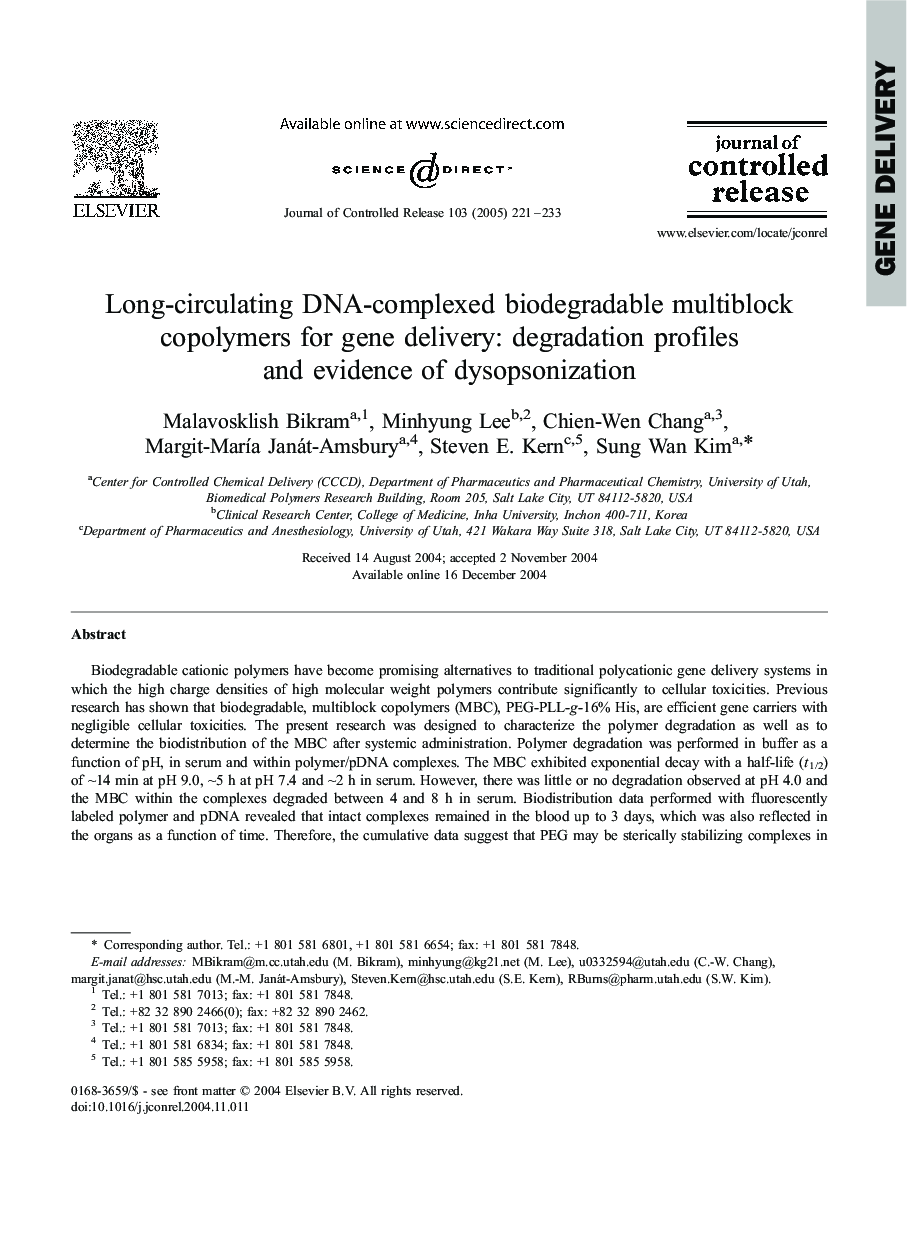| Article ID | Journal | Published Year | Pages | File Type |
|---|---|---|---|---|
| 10613380 | Journal of Controlled Release | 2005 | 13 Pages |
Abstract
Biodegradable cationic polymers have become promising alternatives to traditional polycationic gene delivery systems in which the high charge densities of high molecular weight polymers contribute significantly to cellular toxicities. Previous research has shown that biodegradable, multiblock copolymers (MBC), PEG-PLL-g-16% His, are efficient gene carriers with negligible cellular toxicities. The present research was designed to characterize the polymer degradation as well as to determine the biodistribution of the MBC after systemic administration. Polymer degradation was performed in buffer as a function of pH, in serum and within polymer/pDNA complexes. The MBC exhibited exponential decay with a half-life (t1/2) of â¼14 min at pH 9.0, â¼5 h at pH 7.4 and â¼2 h in serum. However, there was little or no degradation observed at pH 4.0 and the MBC within the complexes degraded between 4 and 8 h in serum. Biodistribution data performed with fluorescently labeled polymer and pDNA revealed that intact complexes remained in the blood up to 3 days, which was also reflected in the organs as a function of time. Therefore, the cumulative data suggest that PEG may be sterically stabilizing complexes in vivo via dysopsonization in which serum proteins mask the complexes from elements of the reticuloendothelial system (RES).
Keywords
Related Topics
Physical Sciences and Engineering
Materials Science
Biomaterials
Authors
Malavosklish Bikram, Minhyung Lee, Chien-Wen Chang, Margit-MarÃa Janát-Amsbury, Steven E. Kern, Sung Wan Kim,
